Formulating the question
Publisert
There are many different ways of forming a research question for a QES. Which question support tool is best for review is related to the topic and what you are going to explore.
About this phase
What happens before this step | A commission is received to answer a question or investigate a topic |
Description | If necessary, work with the commissioner to reformulate the question into a specific question that can be answered through research. Agree upon inclusion and exclusion criteria. |
Why is this step important? | It is important to discuss the question with the commissioner to ensure that the question is specific and fulfils their needs. It is also important to discuss which type of product would best fulfill their needs. If qualitative studies are the best study design to answer the question, then continue with the qualitative evidence synthesis. |
Responsible | Project leader with input from team members, the commissioner and a librarian |
Tasks | The final question should be precise and fulfill the needs of the commissioner. It should be agreed upon by the researchers and the commissioner as answerable and specific. |
Deliverable | A reformulated and agreed upon question |
There are many different ways of forming a research question for a QES. Which question support tool is best for review is related to the topic and what you are going to explore. For further guidance on choosing a question framework please watch the Cochrane webinar “Question formulation and searching for qualitative evidence” available at: https://training.cochrane.org/resource/question-formulation-and-searching-qualitative-evidence
Three of the most popular question frameworks for QES are
- SPICE
- Setting (Where? in what context?)
- Population or Perspective (For whom?)
- Intervention (What?)
- Comparison (What else?)
- Evaluation (How well? What result?)
2. SPIDER
- Sample
- Phenomenon of Interest
- Design
- Evaluation
- Research type
3. PerSPE(c)TiF
- Perspective
- Setting
- Phenomenon (topic) of interest
- Comparison (if using)
- Time/timing
- Findings
Relevant resources:
Cochrane webinar “Question formulation and searching for qualitative evidence” available at: https://training.cochrane.org/resource/question-formulation-and-searching-qualitative-evidence
Cochrane SA Webinar: Formulating & refining questions for a QES. https://www.youtube.com/watch?v=adP_l35cgds
Harris JL, Booth A, Cargo M, Hannes K, Harden A, Flemming K, Garside R, Pantoja T, Thomas J, Noyes J, Cochrane Qualitative and Implementation Methods Group Guidance series - paper 6: Methods for question formulation, searching and protocol development for qualitative evidence synthesis, Journal of Clinical Epidemiology (2018), doi: 10.1016/j.jclinepi.2017.10.023.

